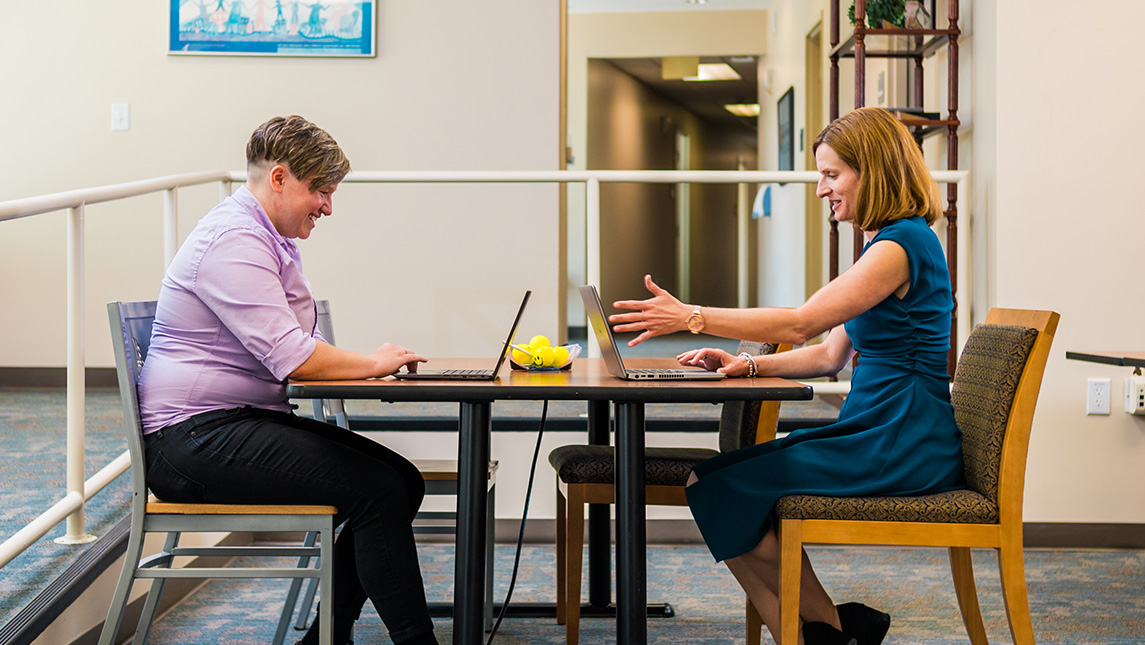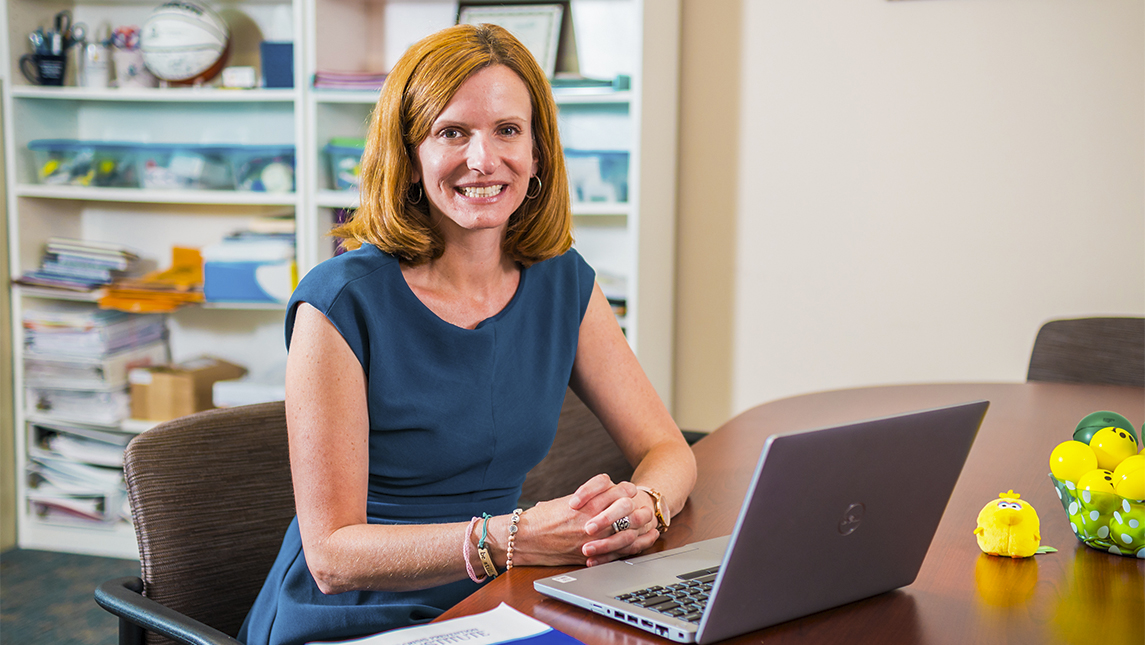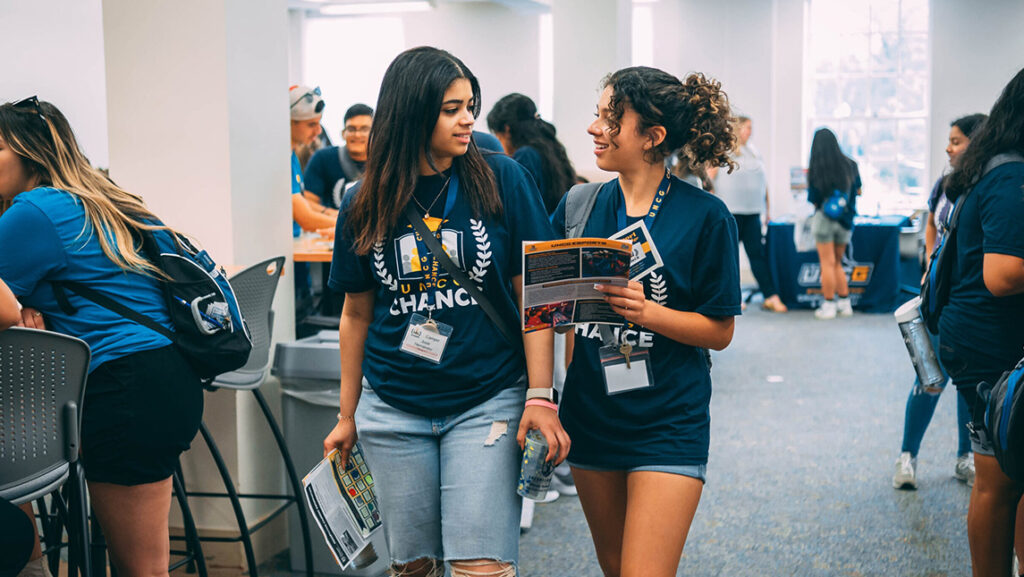Professor Christine Murray, a research expert in domestic abuse, launches new resource for survivors
Amidst all the talk of relationships that come with February’s most famous holiday, Christine Murray, a professor in UNC Greensboro’s Department of Counseling and Educational Development (CED), is thinking of the stark statistics for domestic abuse in the United States. The CDC’s National Intimate Partner and Sexual Violence Survey showed that almost half of both women and men have experienced psychological abuse in an intimate relationship, and about 40% of women and men have experienced physical intimate partner violence.
This month, Murray launched a unique survivor-focused, online tool for people who have experienced domestic abuse called The Source for Survivors. Her goal: create a space that encourages community and support for domestic abuse survivors on a long-term healing journey.
The Long Road of Research and Recovery
Murray is an expert in domestic abuse. She is a licensed marriage and family therapist, a clinical mental health counselor in North Carolina and co-founder of See the Triumph, a research-based social media campaign aiming to support survivors and end the stigma they often face. In her 19 years with UNCG, she spent fourteen years teaching in CED and served as director of UNCG’s Center for Youth, Family and Community Partnerships from 2019 to 2023.
“In addition to my research, I’ve learned from practitioners, service providers and people on the front lines of working with survivors in communities,” Murray says. “And then I have my own experience with my domestic abuse.”
Murray’s personal and work-related experiences with domestic violence have resulted in books, peer-reviewed journal articles a TEDxGreensboro talk, and now The Source for Survivors.
“When I was just starting in the field 20 years ago, I was so young and naive, and I thought ‘We can end domestic violence in the next few decades,’” Murray says. “Twenty years later, rates of domestic violence are still really high. I had a moment of realization that it’s still going to be happening long after my career is gone, so I really wanted to bring my unique perspective to the table and build resources for survivors.”
To do this, Murray pulled from her research relating to the long-term recovery process for domestic abuse. A through-line in much of her work, the recovery element became a place where she could connect her scholarly work with her personal journey.
“Though I’ve been selective about when and how I shared my personal experience with domestic violence, I realize that there is a place for bringing in my personal identity and perspective as a survivor to the work,” Murray says. “A lot of the attention in the field goes toward the immediate crisis, the safety planning and all those resources are so needed – and I’m committed to supporting them – and I know from being on my own healing journey, through our research, and as a mental health professional working with survivors that the long-term journey is not as well-understood. That’s where I want to help.”
The Source for Survivors
The Source for Survivors helps address the long-term journey of survivors. It provides resources for connection and understanding about what’s normal to expect as survivors heal and what survivors can do when facing a difficult moment in the process. The Source for Survivors introduces The Pathways for Supporting Survivors, a guide to empower individuals to recover from abuse through six commitments: being intentional, prioritizing safety, taking a long-range view, making steps forward, reflecting, and paying it forward.
“My professional and personal experiences have shown me how much resources for the long-term recovery process are needed,” Murray says. “I wanted to help make the process of recovering accessible to any survivors so they can know that healing is possible, and they don’t have to walk that journey alone.”
The Road Ahead
Murray shares that her work to support survivors of past abuse is driven by her passion to make resources accessible to more community members as they navigate the aftermath of abuse.
“I want survivors – including myself – to learn to live with the fact we had this experience, but it doesn’t dominate who we are.”
Story by Alice Manning Touchette
Photography by Sean Norona, University Communications




